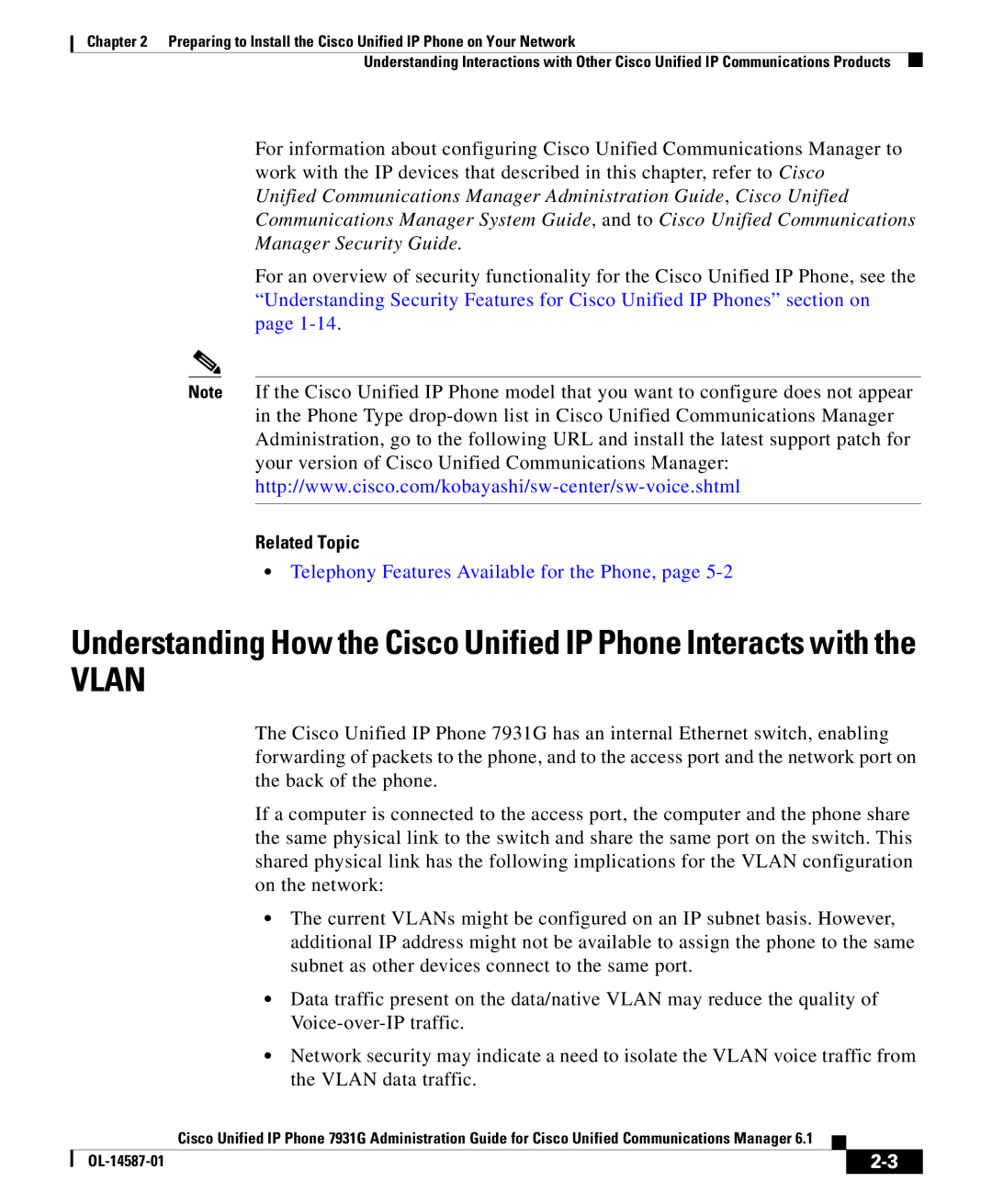
Chapter 2 Preparing to Install the Cisco Unified IP Phone on Your Network
Understanding Interactions with Other Cisco Unified IP Communications Products
For information about configuring Cisco Unified Communications Manager to work with the IP devices that described in this chapter, refer to Cisco Unified Communications Manager Administration Guide, Cisco Unified Communications Manager System Guide, and to Cisco Unified Communications Manager Security Guide.
For an overview of security functionality for the Cisco Unified IP Phone, see the “Understanding Security Features for Cisco Unified IP Phones” section on page
Note If the Cisco Unified IP Phone model that you want to configure does not appear in the Phone Type
Related Topic
•Telephony Features Available for the Phone, page
Understanding How the Cisco Unified IP Phone Interacts with the
VLAN
The Cisco Unified IP Phone 7931G has an internal Ethernet switch, enabling forwarding of packets to the phone, and to the access port and the network port on the back of the phone.
If a computer is connected to the access port, the computer and the phone share the same physical link to the switch and share the same port on the switch. This shared physical link has the following implications for the VLAN configuration on the network:
•The current VLANs might be configured on an IP subnet basis. However, additional IP address might not be available to assign the phone to the same subnet as other devices connect to the same port.
•Data traffic present on the data/native VLAN may reduce the quality of
•Network security may indicate a need to isolate the VLAN voice traffic from the VLAN data traffic.
|
| Cisco Unified IP Phone 7931G Administration Guide for Cisco Unified Communications Manager 6.1 |
|
|
|
|
| ||
|
|
| ||
|
|
|
